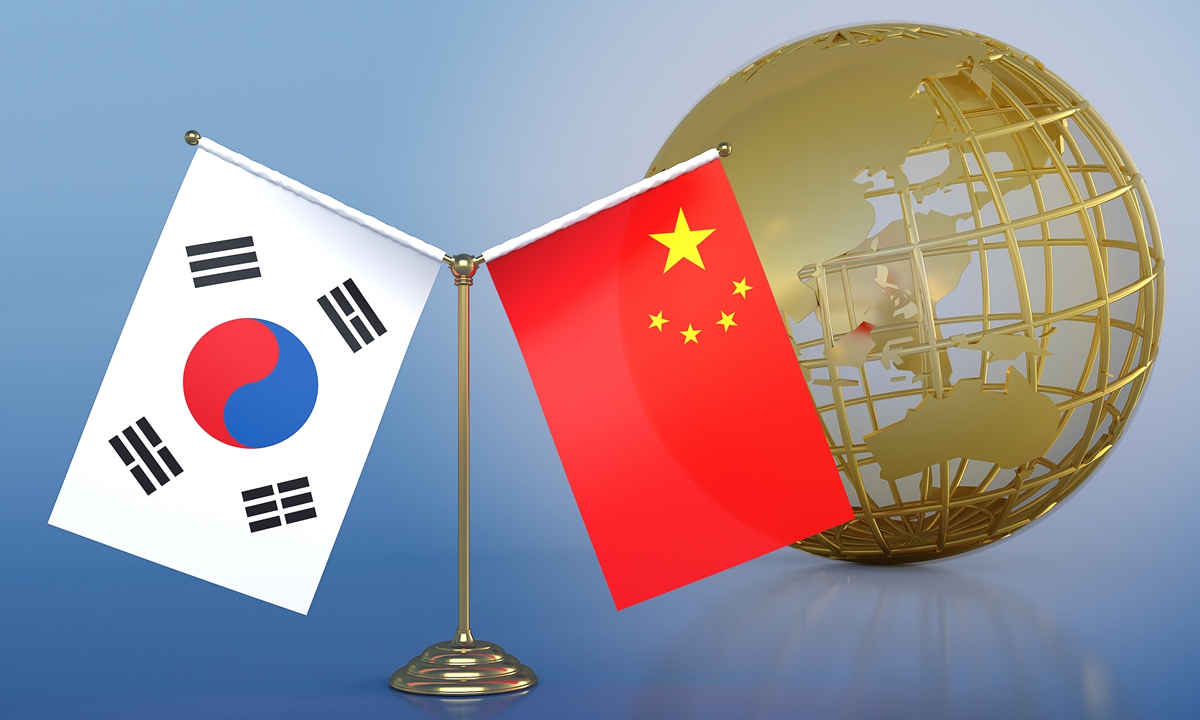
China South Korea Photo:VCG
China’s Ministry of Commerce (MOFCOM) said on Wednesday that China and South Korea have made “positive progress” in the second-phase China-South Korea FTA talks in areas such as cross-border trade in services, investment and financial services.
The Ministry of Commerce of China and the Ministry of Trade, Industry and Energy of South Korea held a meeting between the chief negotiators for the second phase of the FTA negotiations via video link on Wednesday.
The two sides had consultations on trade in services, investment and financial services and market access and made “positive progress,” the MOFCOM said.
Both sides share the view that actively pushing forward the negotiations on the second phase of the China-South Korea FTA negotiations in the hope to achieve substantive results at an early date, will elevate the level of openness and cooperation in service trade and investment, further stimulate the trade potential of the two countries and bring China-South Korea economic and trade relations to a new level.
The latest progress in the FTA negotiation showed that both sides have strong intentions to push forward trade cooperation following the benefits brought by the China-South Korea Free Trade Agreement that went into effect in 2015, Bai Ming, deputy director of the International Market Research Institute at the Chinese Academy of International Trade and Economic Cooperation, told the Global times on Wednesday.
Under the free trade pact, South Korea will eliminate tariffs on 92 percent of all products from China within 20 years after the implementation while China will abolish tariffs on 91 percent of all South Korean goods.
Zero-tariff trade has accounted for 55 percent of the total trade between the two East Asian countries as of January 2021, according to MOFCOM.
In December 2017, leaders of both countries jointly announced the launch of the second phase of the China- South Korea FTA negotiations, which is China’s first negotiation on services trade and investment liberalization of negative lists, according to MOFCOM.
It is expected that the second phase of negotiations will focus on the upgrade of trade in service and investment sector, increasing trade and investment liberalization and facilitation between the two countries, Bai said.
The negotiation comes against the backdrop of the decision by the South Korean government to join the US-led Indo-Pacific Economic Framework (IPEF) as a founding member of the initiative, as the US seeks to tighten its influence within the Asia-Pacific region with quasi-alliance mechanisms.
“It is hoped that South Korea will not be disturbed by these troubling factors. After all, China is a big market for South Korea,” Bai said.
China and South Korea are mutually significant trade partners. In the first six months of 2022, bilateral trade grew 9.4 percent from a year earlier to $184 billion, data from Chinese Customs showed on Wednesday.
Last year, bilateral trade between China and South Korea grew 26.9 percent to $362 billion.
Shu Jueting, MOFCOM’s spokesperson of said at a press conference in June that China and South Korea are important trading partners for each other.
Against the backdrop of a fragile global economic recovery, China-South Korea trade has maintained rapid growth, which fully demonstrates the resilience and potential of bilateral economic and trade cooperation and serves the common interests and development needs of the two countries, Shu said.




